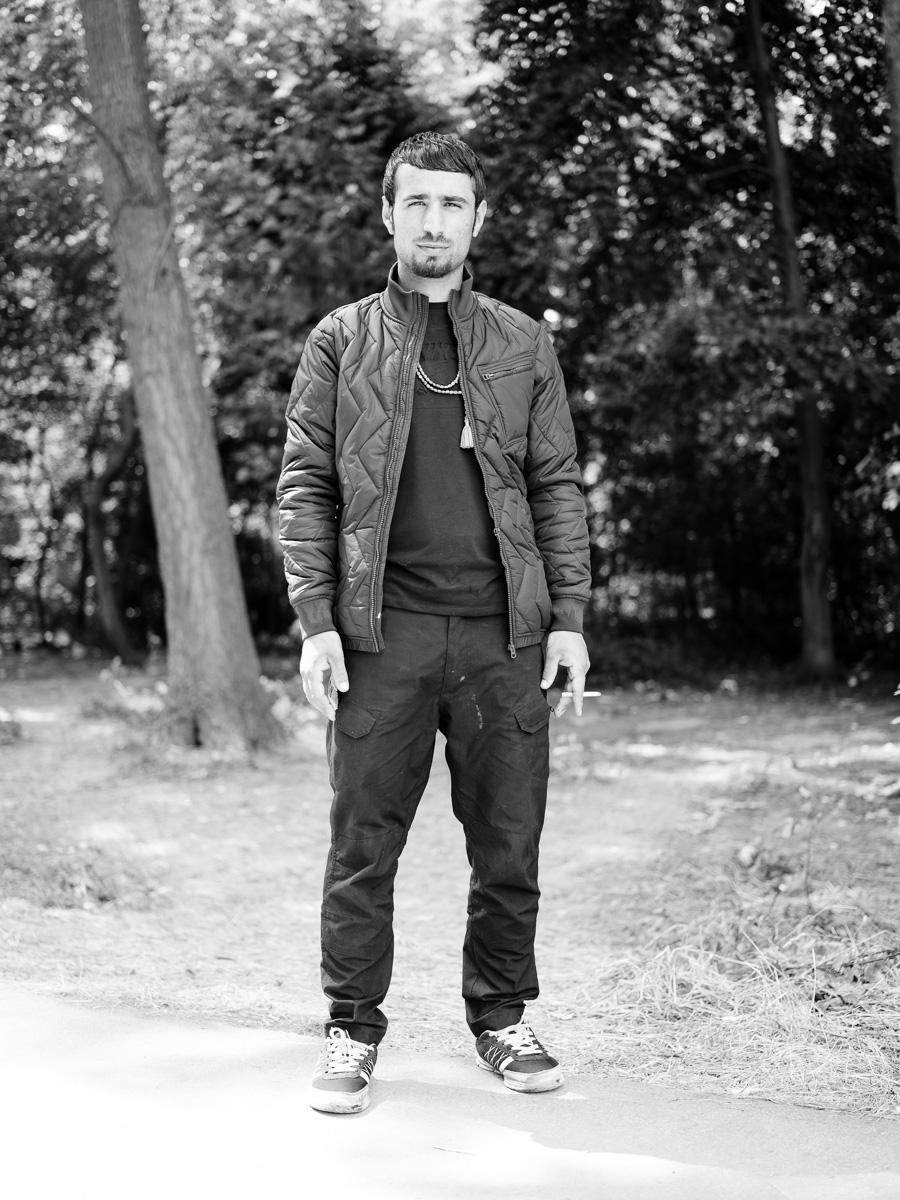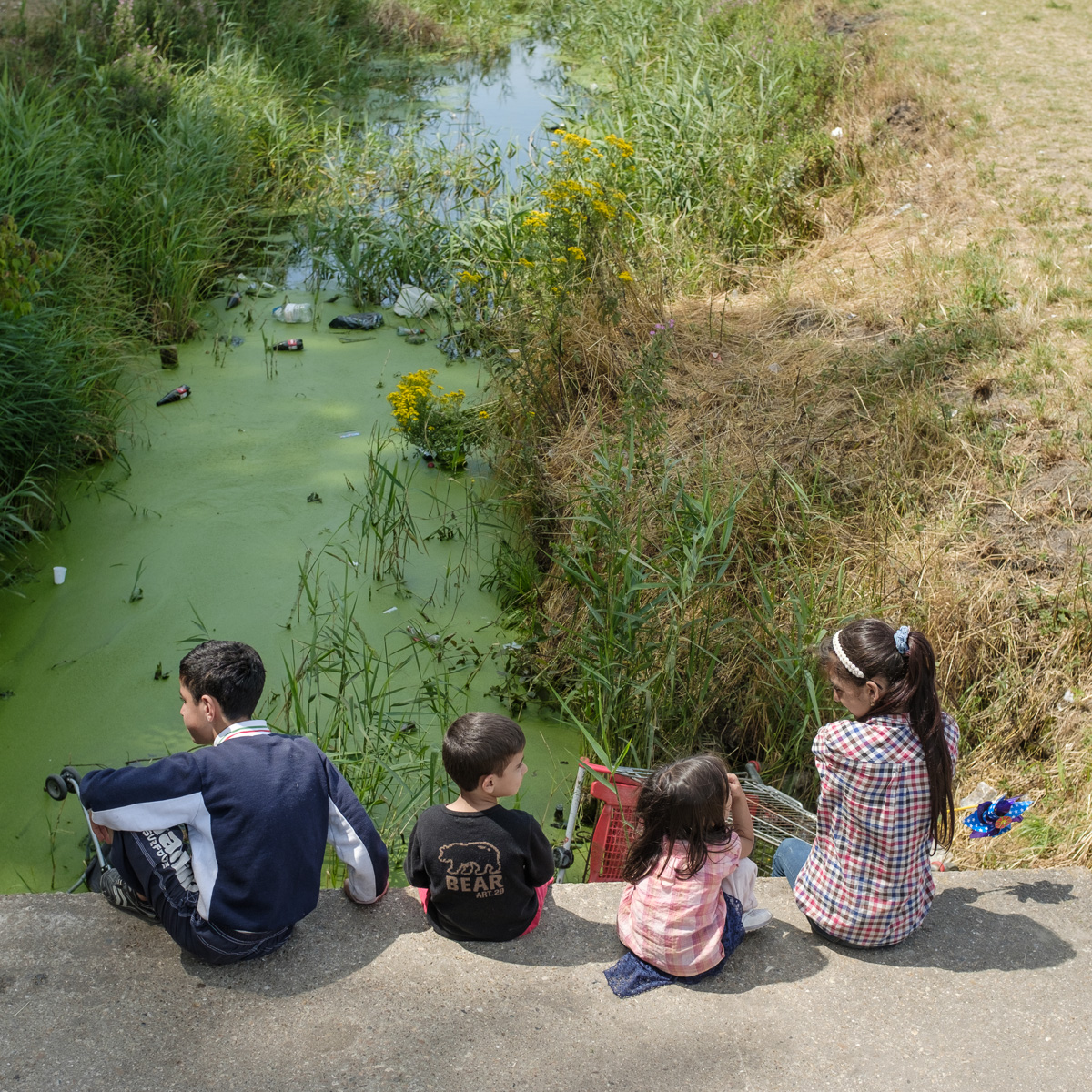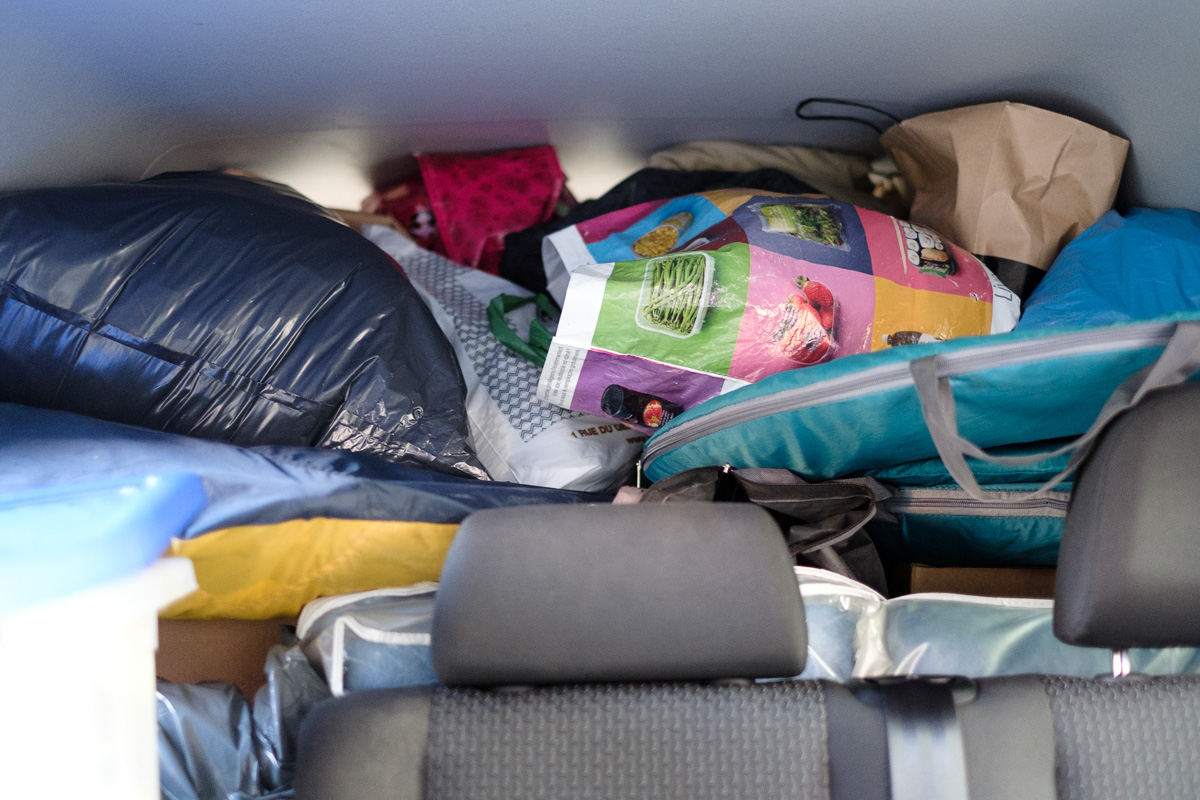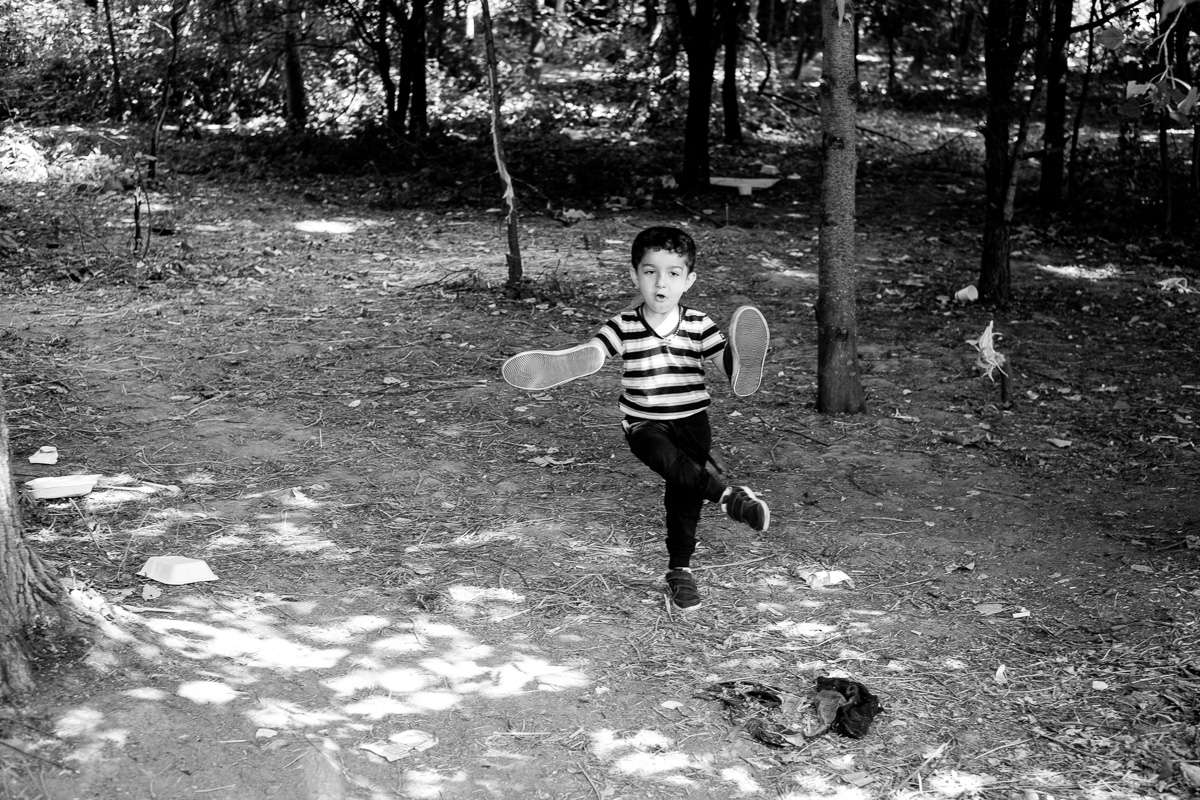Dunkirk: In Search of Humanity in a Refugee Camp
I've been blogging about photography on and off in the last ten years (and I still sometimes do at www.bertstephani.info). Although I still enjoy my role as an educator in the photo industry, I've come to the conclusion that I should spend more time on telling stories that just have to be told. I'm not a photojournalist but that doesn't mean I don't have the responsibility to use my skills and experience as a storyteller even if I'm not paid for it. That's why I started this blog on www.bertstephani.com.
For this young migrant boy, throwing rocks in the polluted stream next to the camp is one of the only things to do.
Although I've visited the refugee camp near Dunkirk before and I did some other work with refugees in Belgium, I'm by no means an expert in this complex, worldwide issue. I have no fundamental solutions but that can't stop me from sharing what I think as a human being who has witnessed how we as a society are treating people who are in desperate need of help. I've been accused of being a naive "migrant hugger", and you know what, I've hugged migrants and I just have to believe that someday we'll figure out a way to solve this crisis. This doesn't mean that I'm blind to the fact that a tiny percentage of the refugees come under false pretenses, that there are challenges in cultural differences and that integration rarely works as well as we would like it to. But I also feel that first of all this is a humanitarian crisis and these refugees deserve to be treated like fellow human beings. This is my personal story of what I've observed and felt during two recent visits to the refugee camp near Dunkirk.
A small migrant girl on her way to the three toilets that have to serve a couple of hundred refugees.
I hooked up with Patrick, a Belgian volunteer who dedicates pretty much all his spare time to help out. He makes the long drive pretty much every week on his own expenses. On the first visit, we arrived just after the police had confiscated and destroyed a row of tents which left about five families without shelter. This unfortunately happens all the time. Officially there is no camp here anymore, so everyone is basically illegally camping and that's the authorities' cue to intimidate people by confiscating their tents and sleeping bags. Patrick immediately started sorting out solutions for the families who were hit by this random violence while I wandered around the site. Although I had been here before in conditions who were more extreme, I still had a hard time processing this horrible mess. I didn't take many pictures but spend most of the time talking to people. I needed to talk to the refugees just as much as they needed to talk to me.
Most of the people in this camp are Kurds from Iraq. They basically are caught between all the forces that want to grab power in the vacuum that Iraq is these day. As the Kurds don't have their own country, their position is highly unstable. Not so long ago they were able to live a relatively normal life and most of them are well educated. They didn't leave their homes to make a bit more money, they left because their lives were in danger. I can only image how desperate you must be to take your family on such a long dangerous journey. Some kids were born on the road and some even in the camps.
Young Iraqi Kurdish refugees are passing time near the refugee camp
While the French state isn't doing much for these refugees, the local authorities do their best to help. Thanks to volunteers and social organisations, the refugees get at least some help but they need anything that they can get. Patrick arrived with a car fully packed with clothes, shoes, tents, sleeping bags and food that he collects from friends and family. Seconds after he opened the booth of his car, he was "sold out".
Having seen how needed these items are, Fellow photographer Julie and I managed to fill up my car with supplies for the second trip.
While collecting stuff, I stumbled upon three dusty boxes of old toys from my kids and threw them in the car. It was great to see the smiles on the faces of these children when they opened the boxes. But a couple of minutes later I pretty much crashed. Seeing these toys for the first time in years brought back memories of my own kids when they were little. I've told many of my friends that if we were born in the wrong country, we would be the ones in those horrible camps, or worse. But it was the first time I actually FELT it. I had to take a little break and process this.
While I processed the inability of our society is to give the less fortunate a humane treatment, we were invited for tea by a group of refugees. They have nothing and still we are welcomed as highly esteemed guests, go figure
I believe we all got a boost out of experiencing that we can just enjoy sharing stories and tea, despite the situation.
Julie, Patrick and myself, photographed by a refugee boy with my camera.
Me with the only other giant around. He gave me some very useful tips to get in better shape.
After we finished our tea, we were quickly reminded how vulnerable the people in the camp are. We saw a man with what seemed like a pretty serious foot injury. It turned out that he tried to jump on a truck in the faint hope he could make it to the UK. Unfortunately he fell of and hurt his foot. We drove him to the hospital and luckily his ankle wasn't broken and with enough rest he will fully recover. It must be said the hospital staff did a good job and didn't charge any money.
When I first went to a refugee camp I was a bit shocked that the refugees seemed to be a bit picky when they were offered free clothes. It took me while to understand that it's just a way to keep a little bit of human dignity. Now I also understand why some volunteer organisations are doing things like bringing in hairdressers or doing the women's nails. It's so important to have at least that little bit of pride.
There is a real need for basic items and all of it will find its way to a new grateful owner. But next to the practical stuff, there are other essential things they need.
Compared to last year, it has become harder to shoot "formal" portraits of adults because pictures can sometimes be used against them by authorities. But at the same time, having their portrait taken is also a way to feel human.
The kids love to have their picture taken, but maybe they like taking the pictures themselves even more. Next to my digital camera, I brought an Instax camera (the modern Polaroid). There is no school, there are very few toys, so the children have basically nothing to do. So taking some pictures themselves was a welcome change. Maybe I should try to get some money and people together to do a sort of workshop with the children one day.
My brain just can't seem process everything I've seen and experienced in these two trips. I want to do more but I'm not sure about how I can help best. For now, I can only hope that my images and words reach a few people. There are plenty of ways you can do your bit to help. A little google search will definitely point you to organisations who collect old clothes, tents, ... You can also volunteer, even if it's just for a day. And let's not forget that you can influence your friends by raising awareness and good conversations. Also it may not always seem like it but in a democracy you do have an influence on politics.
Feel free to share this story if you like.









































